“Will and the Fathom Trust team created an inspiring, creative and comfortable atmosphere in the most beautiful of surroundings which enabled my colleagues and I to fully step away from the everyday demands of leading a Health Board. We were able to re-energise through connecting with nature, renewing relationships by undertaking activities together and learning new skills, reconnect by spending time in one another’s company so that we were able to refresh and refocus our leadership priorities with a renewed enthusiasm and vision. I will definitely plan to bring other teams away with the Fathom Trust’s support and facilitation so that many more of my colleagues can experience just how special it is! Thank you very much Will and all the team.”
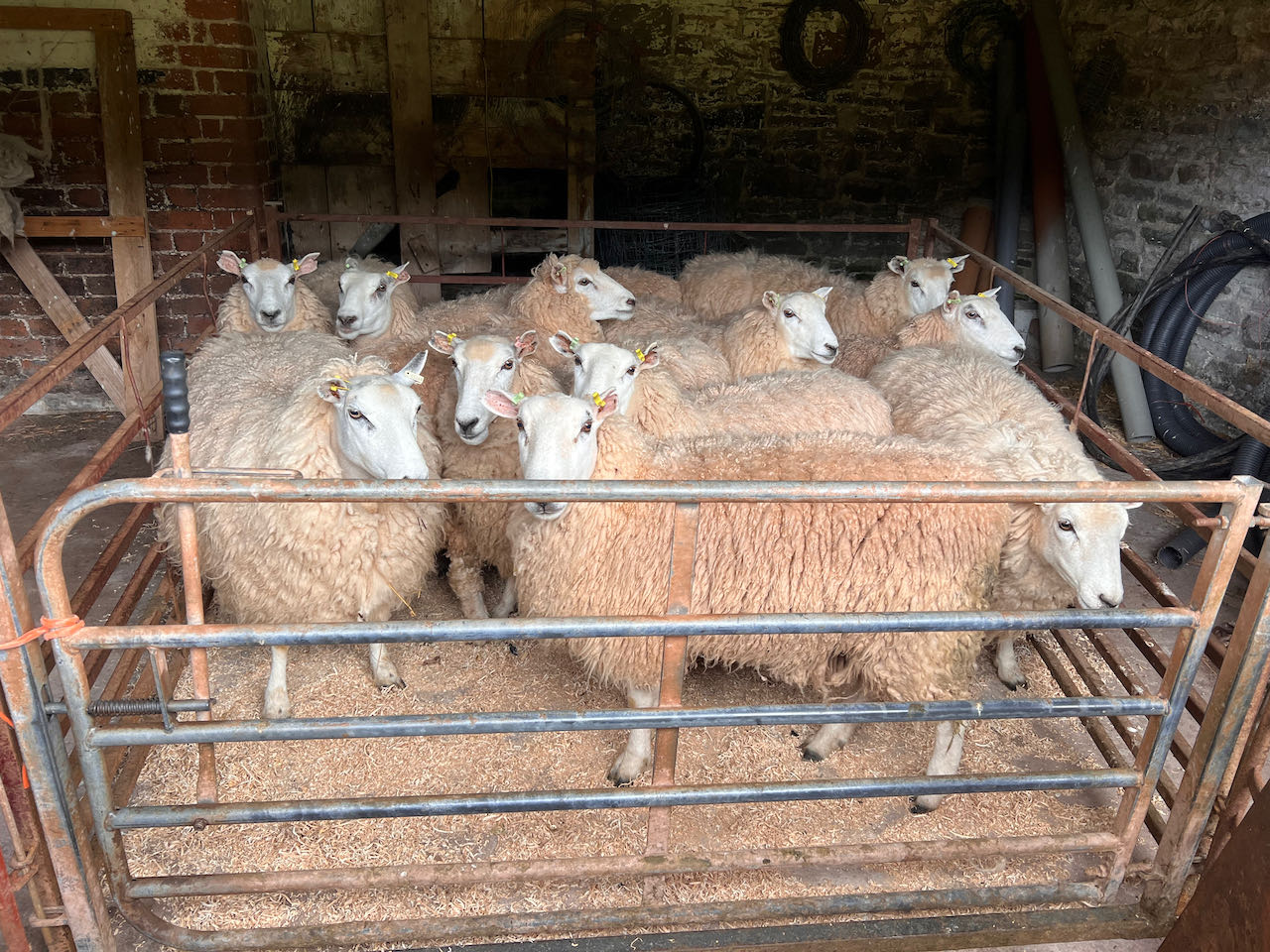
Working with captains of industry and senior leaders across the public sector has been an integral part of our vision since our inception, and also central to our strategy for financial sustainability. Strategy and financial sustainability are key considerations for any leadership team, but felt acutely by the NHS as it recovers from the Covid-19 pandemic and adapts to new costs and pressures in demand.
With responsibility for a billion-pound budget, a staff of 17,000, and the unrelenting demands of being on-call around the clock, they wanted to create some time to strengthen the bonds between the team and to refresh their strategy. So it was that they found themselves bumping across a valley in the Brecon Beacons in two Landrovers to an upland farm, where they spent the afternoon with a dozen sheep being treated to a blade shearing demonstration by Fred Bonestroo. Fred is a Dutch trained organic grower and has worked at the Duchy Home Farm for many years.
Within minutes Fred was issuing a passionate and well-informed challenge to the group on the links between soil health, nutrient-dense foods, and human health. Whilst skilfully removing the fleece from a Romney-cross ewe with a series of deft cuts, he expounded on the benefits of nutrient-rich fruit and vegetables and whole foods to the human immune system and to personal energy and vitality. The message was well received but these senior health leaders minds were focusing on the task at hand! One by one they climbed into the pen and under Fred’s supervision and each succeeded in removing a fleece. Given that it was relatively late in the season for sheering, the fleeces were in a condition where they could immediately be felted. Patricia and Maisie, two felting instructors, worked with the group to tease and card the wool with the aim of making a rug to take home.
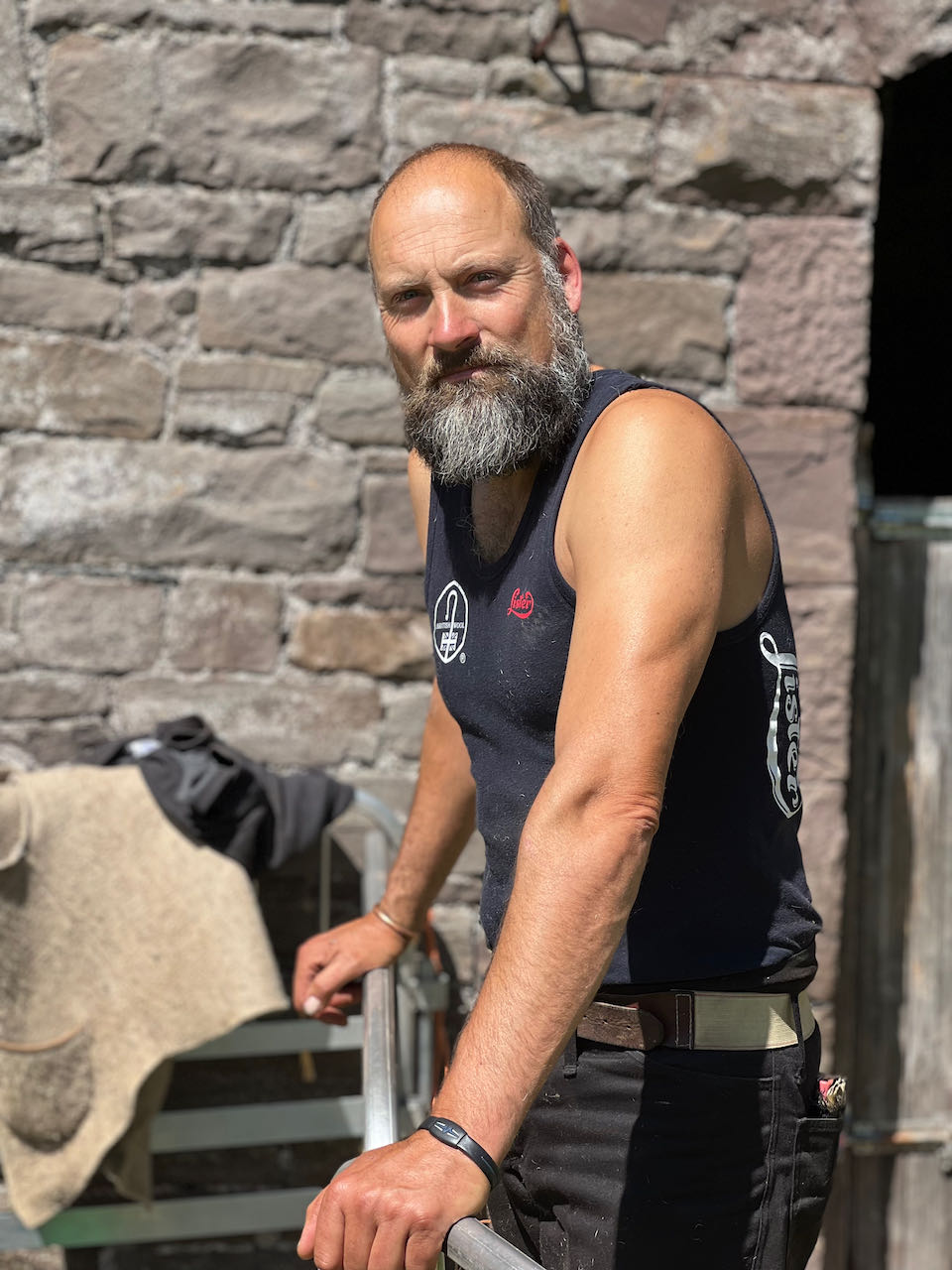
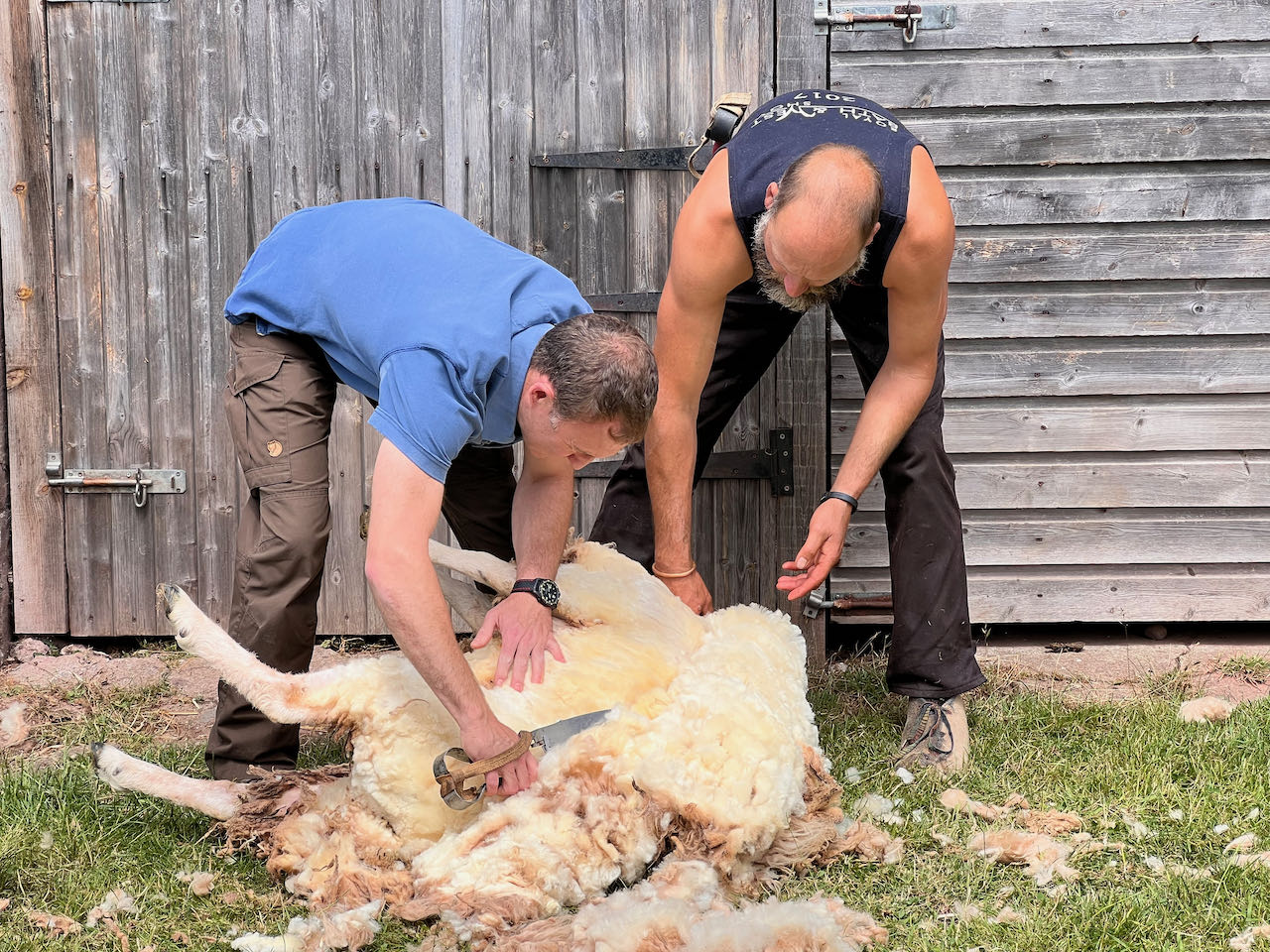
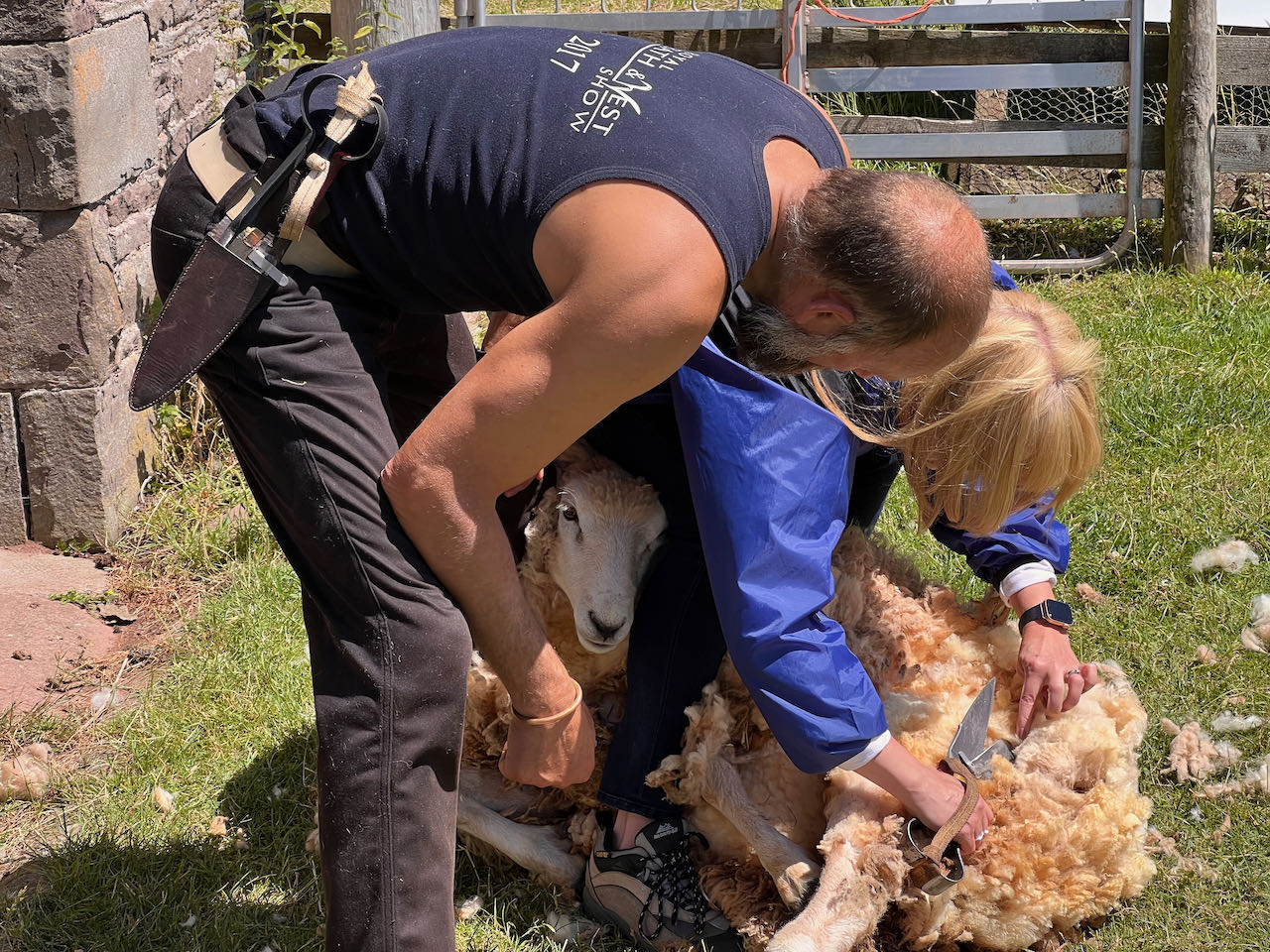
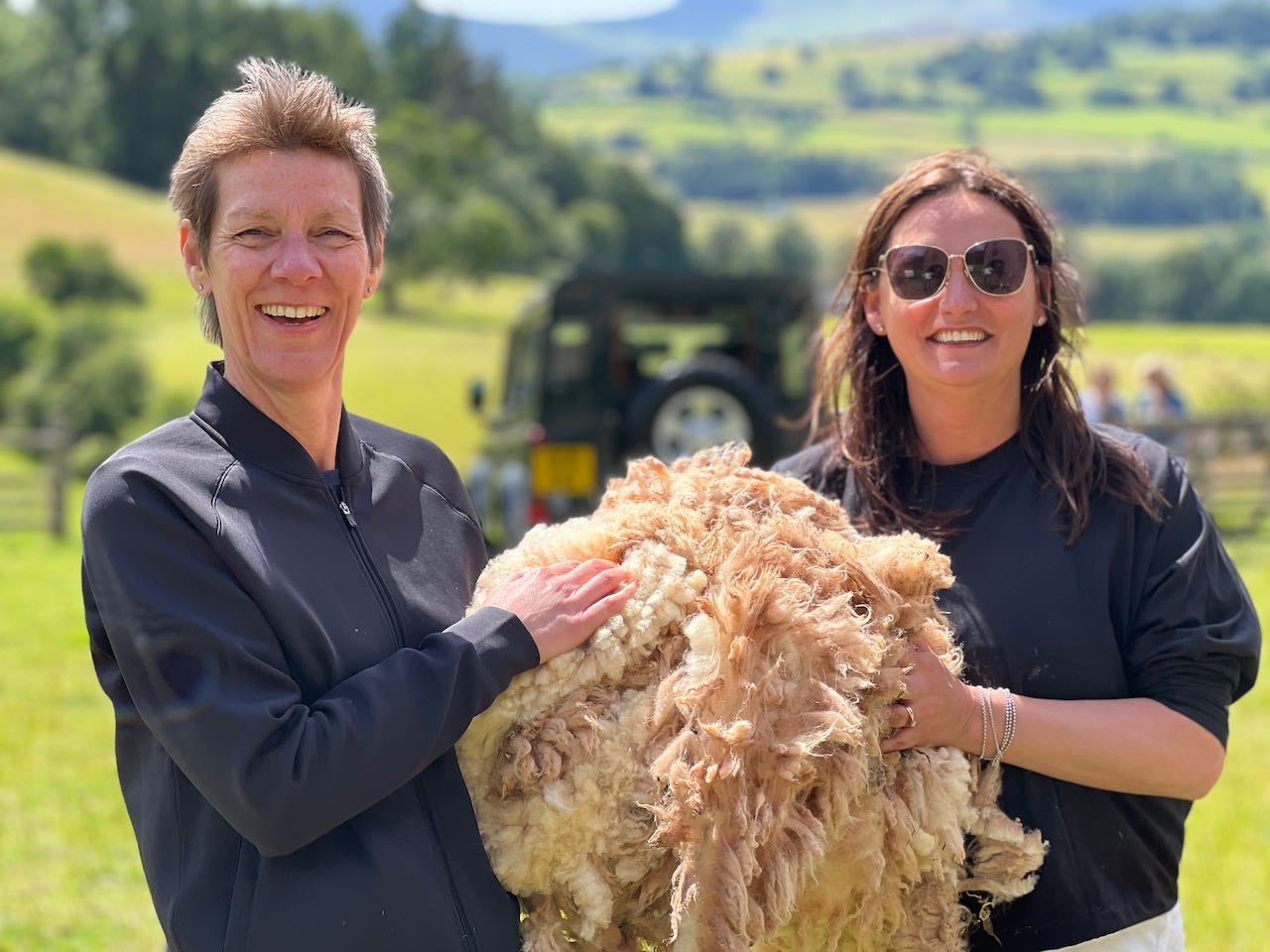
We were joined by Michael Boyle, a psychotherapist and founding partner of Olivier Mythodrama, as well as Sue Harding, an expert leadership coach. Following two strategy sessions and dinner, Michael introduced the group to the concept of the 10 archetypes, offering them a common language for communication, self-expression, and strategic direction. Archetypes, he described, are the underlying patterns of human nature and experience that recur throughout history and across cultures. For me, it complements the Fathom methodology very well in that it gives expression to the basic motivations and compulsions that give people their distinct energetic footprint. For the NHS leaders, it was particularly illuminating for its potential to deeply inform the character they each present to the world as individuals and the culture they present to their staff as a collective. For all of us, it was revealing to reflect on how the archetypes inform our values and motivations and dictate our mindset and behaviour.
The following day, we set up a felting workshop at the opposite end of the room from where the strategy sessions were taking place. We invited the group to continue talking around the table or to resume their felting with the goal of each taking home their own rug. In groups of two and three, the entire group gradually made its way to the felting workshop, where a series of unplanned conversations unfolded, facilitated by a common focus on teasing and felting the wool at hand. Each of us observed a remarkable fluidity to these interactions and a striking quality to the content of each dialogue. It was a vivid reminder of the embodied nature of human interaction and the effectiveness of craft-making in creating space for human connexion.
As the strategy sessions developed from relatively formal presentations and group discussions to more informal conversations between small groups, the atmosphere in the room changed. The group rolled up its sleeves. Some found themselves on their knees with their hands in buckets of water; others gently stretched wool between their hands; and others held a finished rug aloft with childlike glee. In amongst all this activity, I was reminded of a bronze sculpture of Moses, parting the Red Sea with arms aloft. Minds were inevitably beginning to return to the operational pressures they had momentarily left behind the day before. Although a direct path on dry land may not have emerged as clearly as it did for Israelites, there was a clear sense that the waters had been parted, if only for a moment, and that a path was emerging that would help this group lead their teams through the tremendous pressures that surround them on all sides.
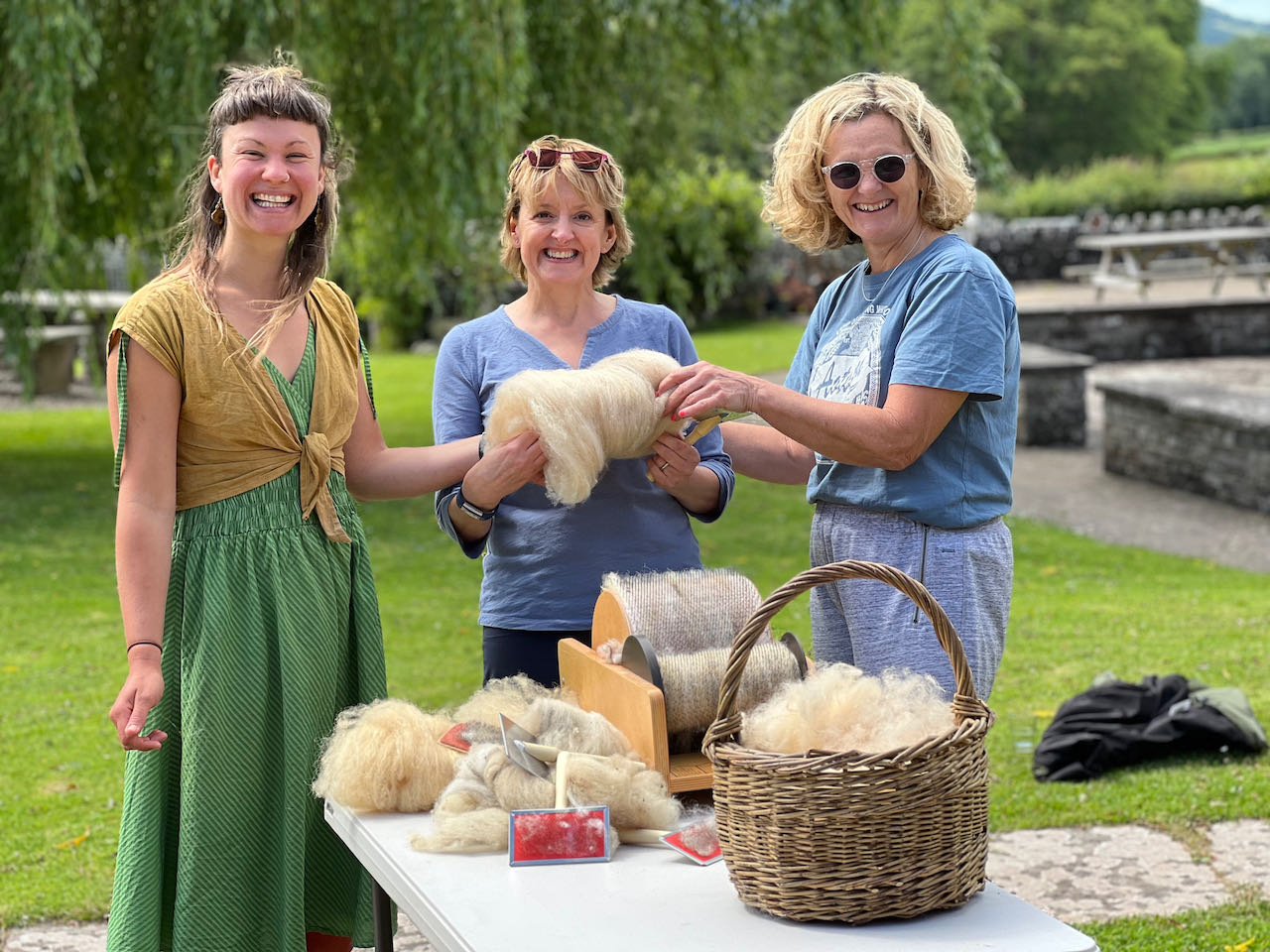
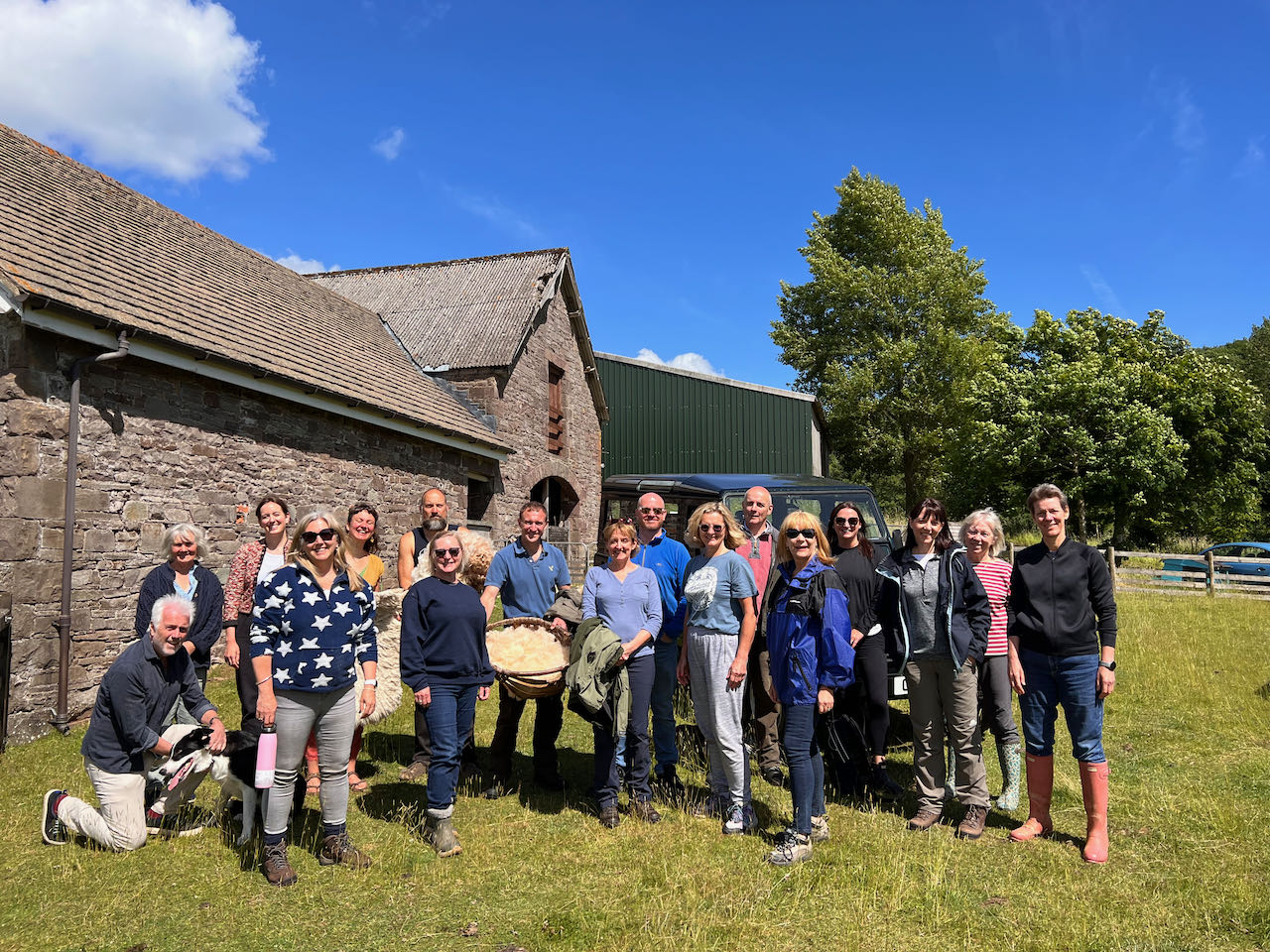
“The Fathom Trust and Will surpassed our expectations. Using the culture of Wales as our anchor enabled a creative design for our team development session. The environment and the ability to participate in traditional crafts enabled healthy and productive conversations. We should think differently when developing a healthy organisational development session and this is definitely the place to go! We will be back and so will many of our teams. Thank you!”
There is a full account of the 10 archetypes in a recent publication ‘Archetypes At Work’ (Hillman & Olivier, 2019) which serves as an invitation to a journey of self-exploration through personality, leadership styles and situations. The archetypes are grouped into pairs, each presiding over an essential theme in leadership and in life: order, relationship, creativity, change, action. As for the archetypes themselves, the Sovereign brings order through vision and purpose; the Stategist brings order through Structure and Mastery; the Nurturer creates relationships through care and empathy; the Lover values relationships of equals and appreciates beauty and desire; the Dreamer accesses creativity through imagination and inspiration; the Storyteller enables effective communication and synthesis; the Renegade enables change through invention and disruption; the Transformer brings a slower process of mystery and regeneration; the Warrior moves to action assertively in pursuit of a clear goal; the Explorer is an expansive optimist questing adventure and truth. Importantly, each archetype is available to us all and a situation can be examined from each of their ten distinct perspectives.